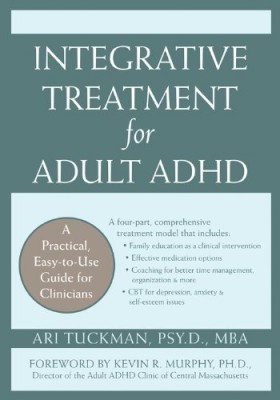Living With Adult ADHD: A Practical Guide

Table of Contents
Understanding Adult ADHD Symptoms & Diagnosis
Adult ADHD, also known as Adult ADD, presents unique challenges compared to childhood ADHD. Common symptoms include difficulty focusing, impulsivity, hyperactivity, and significant organizational challenges. These symptoms aren't always easily recognized in adults, often manifesting differently than in children.
- Difficulty Focusing: Struggling to complete tasks, easily distracted by external stimuli, frequent mind-wandering during conversations or work.
- Impulsivity: Making hasty decisions, interrupting conversations, difficulty controlling emotions, acting without thinking through consequences.
- Hyperactivity: Restlessness, fidgeting, difficulty sitting still for extended periods, excessive talking.
- Organizational Challenges: Procrastination, losing things frequently, difficulty managing time effectively, struggling with planning and prioritizing tasks.
These symptoms can significantly impact daily life, leading to problems at work, strained relationships, and financial difficulties. For example, difficulty focusing can lead to missed deadlines at work, while impulsivity can damage relationships. Financial problems can arise from poor organizational skills and impulsive spending.
A professional diagnosis is crucial for effective management of Adult ADHD. Different assessment methods are used, including interviews, questionnaires (like the ASRS), and neuropsychological testing. Getting the right diagnosis allows you to access appropriate support and treatment.
Strategies for Managing ADHD at Work
The workplace presents unique challenges for adults with ADHD. However, effective strategies can significantly improve productivity and job satisfaction. Time management techniques are key to success. The Pomodoro Technique, involving focused work intervals followed by short breaks, and time blocking, allocating specific time slots for tasks, are incredibly helpful.
- Utilize Planners and Reminders: Digital calendars, to-do lists, and reminder apps are invaluable tools for staying organized and on track.
- Break Down Large Tasks: Overwhelm is a common enemy. Divide large projects into smaller, manageable steps to make progress feel less daunting.
- Minimize Distractions: Create a quiet workspace, utilize noise-canceling headphones, and communicate your need for focus to colleagues.
Learning to manage focus and concentration is a vital skill. Practice mindfulness techniques, take regular breaks to avoid burnout, and prioritize tasks based on importance and urgency. These ADHD workplace strategies can transform your professional life.
Improving Relationships with Adult ADHD
ADHD significantly impacts communication and relationships. Impulsivity, difficulty with emotional regulation, and challenges with focus can strain relationships with partners, family, and friends.
- Active Listening: Practice truly listening to others, showing genuine interest, and asking clarifying questions.
- Clear and Concise Communication: Avoid ambiguity and rambling. State your needs and feelings directly and respectfully.
- Open Communication About ADHD: Educating loved ones about your challenges helps them understand your behavior and offer better support.
Open and honest communication is paramount. Explain how ADHD affects you, and work collaboratively to find solutions. For significant relationship challenges, couples counseling or family therapy specializing in ADHD can provide invaluable support and guidance.
Lifestyle Changes for Better ADHD Management
Lifestyle changes play a critical role in managing ADHD symptoms. The connection between physical and mental well-being is significant.
- Regular Exercise: Physical activity releases endorphins, improves focus, and reduces stress and anxiety. Aim for at least 30 minutes of moderate-intensity exercise most days of the week.
- Healthy Diet: A balanced diet rich in fruits, vegetables, and whole grains provides sustained energy and reduces mood swings. Limit processed foods, sugar, and caffeine, which can exacerbate ADHD symptoms.
- Consistent Sleep Schedule: Adequate sleep is essential for cognitive function and emotional regulation. Aim for 7-9 hours of quality sleep per night.
These lifestyle adjustments, combined with other ADHD management strategies, contribute significantly to improved symptom control and overall well-being.
Seeking Professional Help for Adult ADHD
Many effective treatment options are available for Adult ADHD. Professional help is crucial for developing a personalized management plan.
- Therapy: Cognitive Behavioral Therapy (CBT) and behavioral therapy can help develop coping mechanisms and improve self-management skills.
- Medication: Stimulant and non-stimulant medications can help manage symptoms like inattention, impulsivity, and hyperactivity.
- Coaching: ADHD coaches provide support and guidance in developing strategies for daily life management.
Finding the right therapist or psychiatrist is important. Consider seeking recommendations from your doctor or support groups. Medication should always be prescribed and monitored by a qualified healthcare professional.
Conclusion
Living with Adult ADHD presents unique challenges, but with the right strategies and support, you can significantly improve your quality of life. By understanding your symptoms, implementing practical management techniques, and seeking professional help when needed, you can take control of your Adult ADHD. Remember, you're not alone, and there are many resources available to help you thrive. Start taking steps today to manage your Adult ADHD effectively and create a more fulfilling life. Learn more about available resources and treatment options by searching for "Adult ADHD support" online.

Featured Posts
-
 Search For Missing Paralympian Sam Ruddock Expands In Las Vegas
Apr 29, 2025
Search For Missing Paralympian Sam Ruddock Expands In Las Vegas
Apr 29, 2025 -
 The Uks Legal Definition Of Woman Implications For Transgender Individuals And Sex Based Rights
Apr 29, 2025
The Uks Legal Definition Of Woman Implications For Transgender Individuals And Sex Based Rights
Apr 29, 2025 -
 Celebrate Independence Day Willie Nelsons Texas Picnic
Apr 29, 2025
Celebrate Independence Day Willie Nelsons Texas Picnic
Apr 29, 2025 -
 Adhd Og Skoleprestasjoner Fhi Funn Om Medisinens Begrensede Virkning
Apr 29, 2025
Adhd Og Skoleprestasjoner Fhi Funn Om Medisinens Begrensede Virkning
Apr 29, 2025 -
 Rekordiniai Porsche Pardavimai Lietuvoje 2024 Metais
Apr 29, 2025
Rekordiniai Porsche Pardavimai Lietuvoje 2024 Metais
Apr 29, 2025
